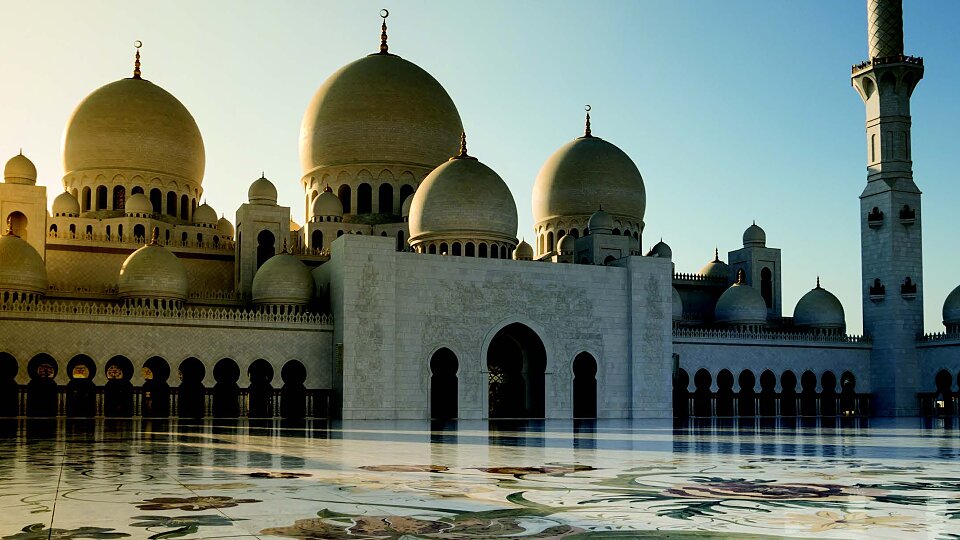What Is Islam?
In the early seventh century, Muhammad—a Saudi Arabian tradesman with wealth and prominence—first announced that he had received a message from the angel Gabriel and was called to be the next prophet of God. Few could have imagined the international significance Muhammad’s prophecies would have today.
As of 2015, 1.8 billion people worldwide identify with the religion of Islam—the fastest growing religion in the world. And while most Muslims live in Asia-Pacific, the Middle East, and Sub-Saharan Africa, believers of Islam are not as far away as you might think.
One percent of Americans today are Muslim (3.5 million people). And like the rest of the world, Islam is continuing to grow at a rapid rate right here in the United States. In fact, several research centers suggest that as early as 2040, Islam will be the second-largest religion in America.
Here’s the good news: you don’t need to be a full-time missionary to the Middle East to witness to Muslims. Today, they serve in your workplace, study with your children in school and live in your neighborhood. To reach them, you must love them, listen to them, and share the gospel with them. In order to do that effectively, we need to know more about what they believe, and why they believe it.
WHERE DID ISLAM COME FROM?
Islam was founded by Muhammad, who had grown up in poverty. At an early age, he lost both of his parents and spent his developmental years being shuttled between relatives. Finally, he was adopted by a poor uncle.
After being mentored by his uncle, a tradesman, Muhammad took up the same occupation and became quite successful. He traveled the region around a prosperous city called Mecca, buying goods to sell to the wealthiest members of the city.
On his 40th birthday, Muhammad received what he believed to be a vision from the angel Gabriel, who told him that he had been chosen by Allah (Arabic for “god”) to be his next prophet and apostle.
WHAT DO MUSLIMS BELIEVE?
Islam means “surrender,” and the Islamic faith is characterized by total surrender to their god, Allah. Islam is built on the foundation of five pillars—five action steps that symbolize a Muslims total surrender to god.
These pillars include sole worship to Allah and recognition of Muhammad as his prophet, a daily series of prayers, tithing, fasting, and a pilgrimage to Islam’s sacred site, Mecca, where Muhammad received his vision.
The teachings of Islam do not merely impact the heart and mind of its followers, but every aspect of a person’s life. Islam impacts a follower’s lifestyle, including diet, dress, and work life. And it certainly impacts their political beliefs.
The Pact of Umar, considered a sacred Islamic text, illustrates the relationship between Islam as a belief system and Islam as a political system. In this pact, unbelievers are required to submit to Islamic government in Islamic territories, including the payment of taxes. Unbelievers are not allowed to marry Muslim women, but they must allow their daughters to marry Muslim men. Furthermore, Christians are not allowed to attempt converting a Muslim, but must allow their own family members to convert to Islam. As you can see, Islam is a one-way street. In Islamic republics to this day, nonbelievers are treated as second-class, inferior inhabitants.
HOW DID ISLAM GROW?
At first, Muhammad attempted to convince Jews that he was simply a continuation of their long lineage of prophets. He adopted the Jewish diet, respected Sabbath-day worship, and told his followers to pray toward Jerusalem.
However, once he realized that Jewish leaders would never recognize his authority, Muhammad rejected all Jewish customs and began waging war against Jews—plundering their villages and homes. Inherent in the teachings of Islam is the belief that all unbelievers must be subjugated by Islam. During his life, Muhammad warred against various nations, taking their land, and subjugating their people. Following his death, his followers continued that same strategy of domination and expansion.
WHAT IS THE STATE OF ISLAM TODAY?
Globally, Islam is the second largest religion in the world. Beyond that, the number of Islamic nation-states continue to display a significant amount of political power in the Middle East, Asia, and Africa.
Many Islamic States in the Middle East sit on vast oil reserves, which can be processed and sold to the rest of the world at profitable prices. Thus, while these nations may be small geographically, and far less developed technologically and educationally, they have become immensely wealthy, with vast resources and financial ability. Much of that money is dedicated to the spread of Islam around the world, especially in the western world.
A new mosque (a place of worship for Muslims) is built in America every single month. Through vast online social networks and internet platforms, Western converts to Islam share their stories of conversions, a powerful witness for more potential converts.
While Islam claims to be a continuation of established religions, and not a new faith itself, this religion is an obvious distortion of the Jewish faith, and certainly opposed to the teachings of Jesus. While Islam claims Jesus Christ as one of its prophets, they reject His deity, His crucifixion, salvation by faith in Christ alone, and more essential doctrines of Christianity.
With this understanding of Islamic faith, we can better prepare ourselves for gospel-centered conversations with the many Muslim believers all around us. But even if you don’t know any believers of Islam personally, pray that God will reveal himself to Muslims worldwide—showing them the error of what they believe and pointing them to the cross of Christ.



Add a Comment
Comments